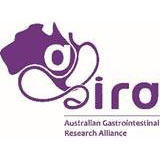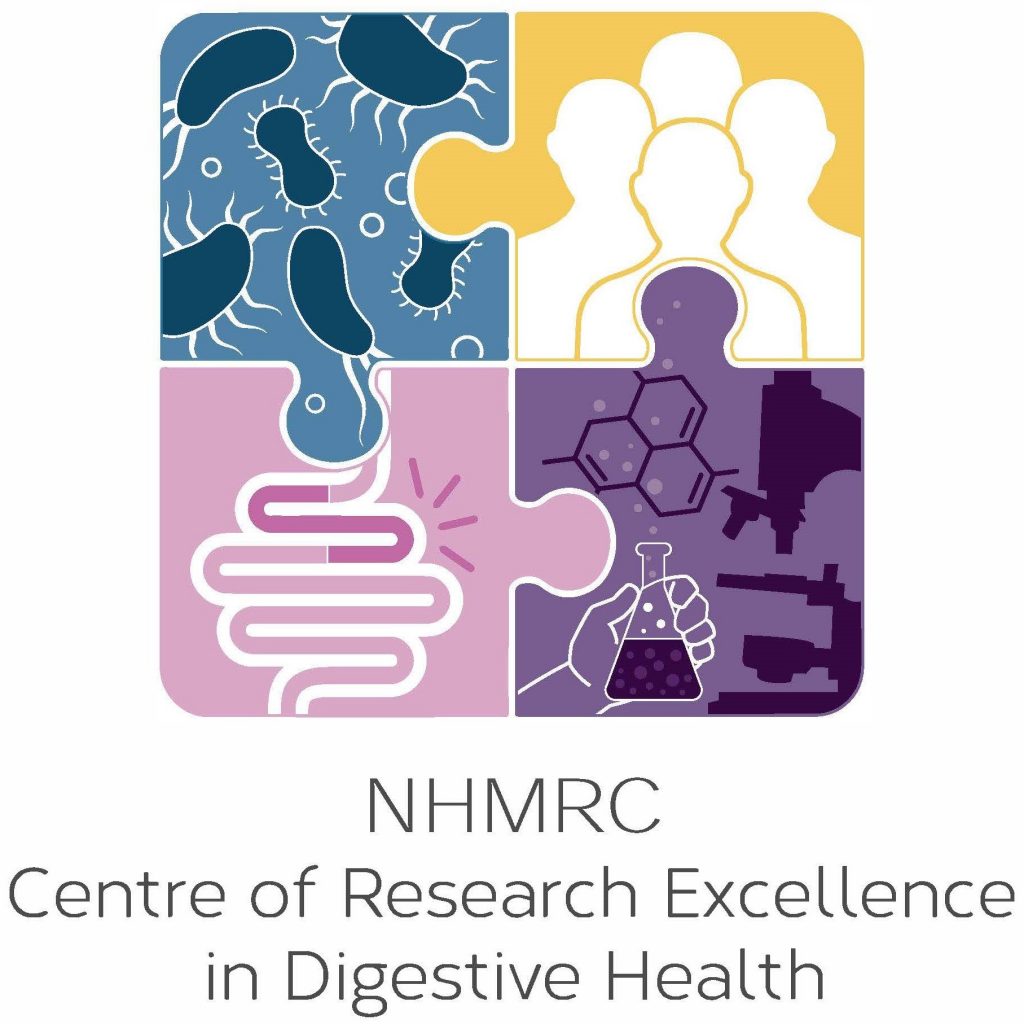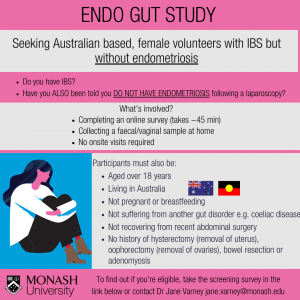Our researchers want to know more. Help our scientists and clinicians understand more about functional gut disorders by assisting with research.
You can help (whether you have gut disorders or not) by completing two short surveys (they will take between 10-20 minutes to complete).
The CRE in Digestive Health aims to better understand a range of digestive diseases that affect the whole spectrum of the gastrointestinal tract including:
- Reflux disease
- Eosinophilic Esophagitis
- Celiac Disease
- Non celiac wheat/gluten sensitivity
- Diverticular disease
- Inflammatory Bowel disease
- Ulcerative colitis
- Crohn’s disease
- Spirochaetosis
- Helicobacter pylori
- Primary Sclerosing Cholangitis
- Achalasia
- Unexplained (Functional) gastrointestinal diseases
- Irritable Bowel Syndrome
- Functional Dyspepsia
More than one third of Australians have chronic or relapsing unexplained gastrointestinal (GI) symptoms, including abdominal pain, abdominal fullness, unable to finish a normal meal, bloating, constipation or diarrhoea. For over 50% of patients with chronic gastrointestinal symptoms no structural or biochemical abnormality is found on routine testing, and they are referred to as Functional GI Disorders (FGIDs), most notably the irritable bowel syndrome (IBS) and functional dyspepsia. While not life-threatening these disorders are usually chronic, lasting for many years.
Digestive diseases are common in Australia and on the rise. The current lack of specific diagnostic tests or effective targeted treatments for people suffering with specific digestive diseases, especially unexplained functional gastrointestinal diseases places a significant burden of the individual, their families and the health care system.
Many patients with digestive diseases have a poorer quality of life compared to people without these disorders and also when compared to patients with other diseases such as coronary heart disease and diabetes mellitus. Digestive diseases can impact a person’s physical, mental and social functioning and ability to work ad study. Studies have shown that people with digestive diseases such as irritable bowel syndrome also have increased rates of psychological distress including anxiety and depression.
Digestive diseases also place a significant burden on the health care system. This is especially true for people with unexplained (functional) gastrointestinal diseases (FGIDs), as many people with these diseases frequently seek health care and undergo numerous diagnostic tests including blood tests, ultrasounds and endoscopy procedures to try and diagnose their symptoms. In America, irritable bowel syndrome alone is known to cost the economy $20 billion dollars each year and while Australian data on the costs are lacking it is expected to be comparably high.
The Centre of Excellence in Digestive Health is dedicated to improving the lives of people suffering from digestive diseases. We are working hard in the laboratories to better understand these disorders, to identify new ways to diagnose patients and to test novel targeted treatments for these disorders We are also developing a toolkit for patients, clinicians and researchers. The tool kit will provide educational content, research tools, and practical resources.
Latest news
APAME 2024 Conference
Monash University seeking female volunteers for IBS study
Functional Dyspepsia (FD): Interview with Professor Nicholas Talley
Our partners

























